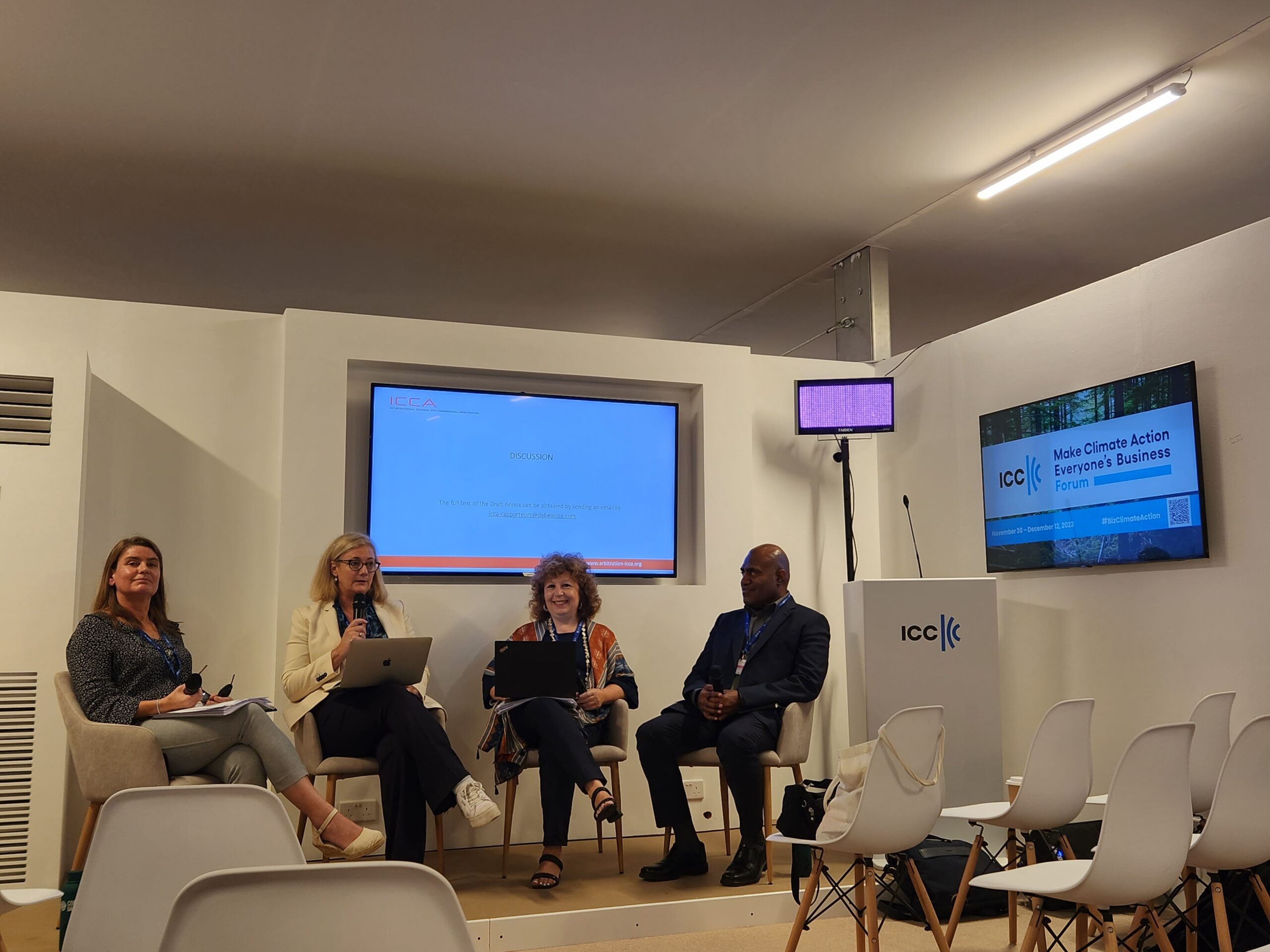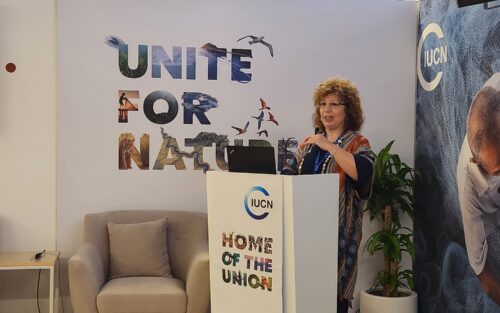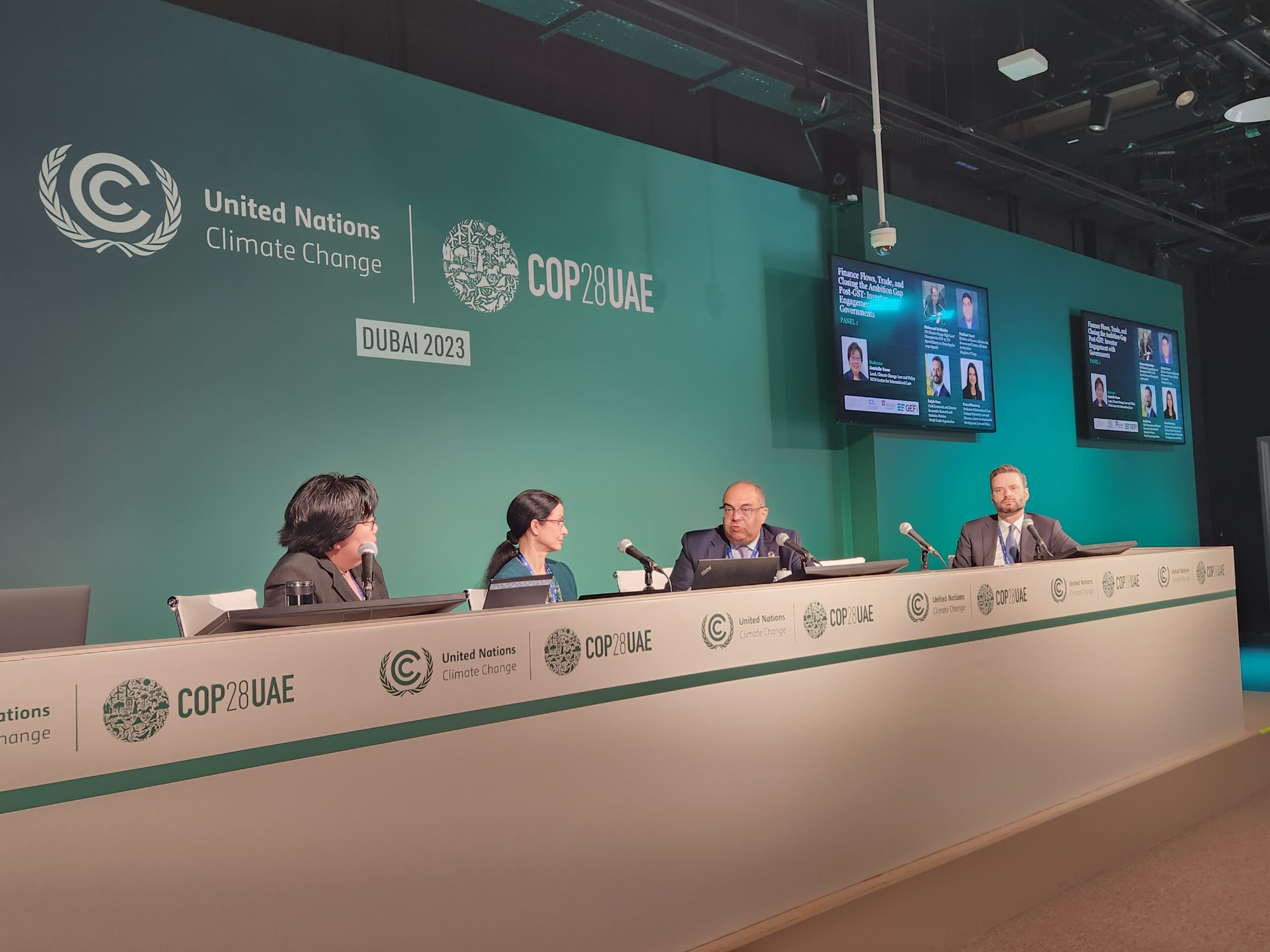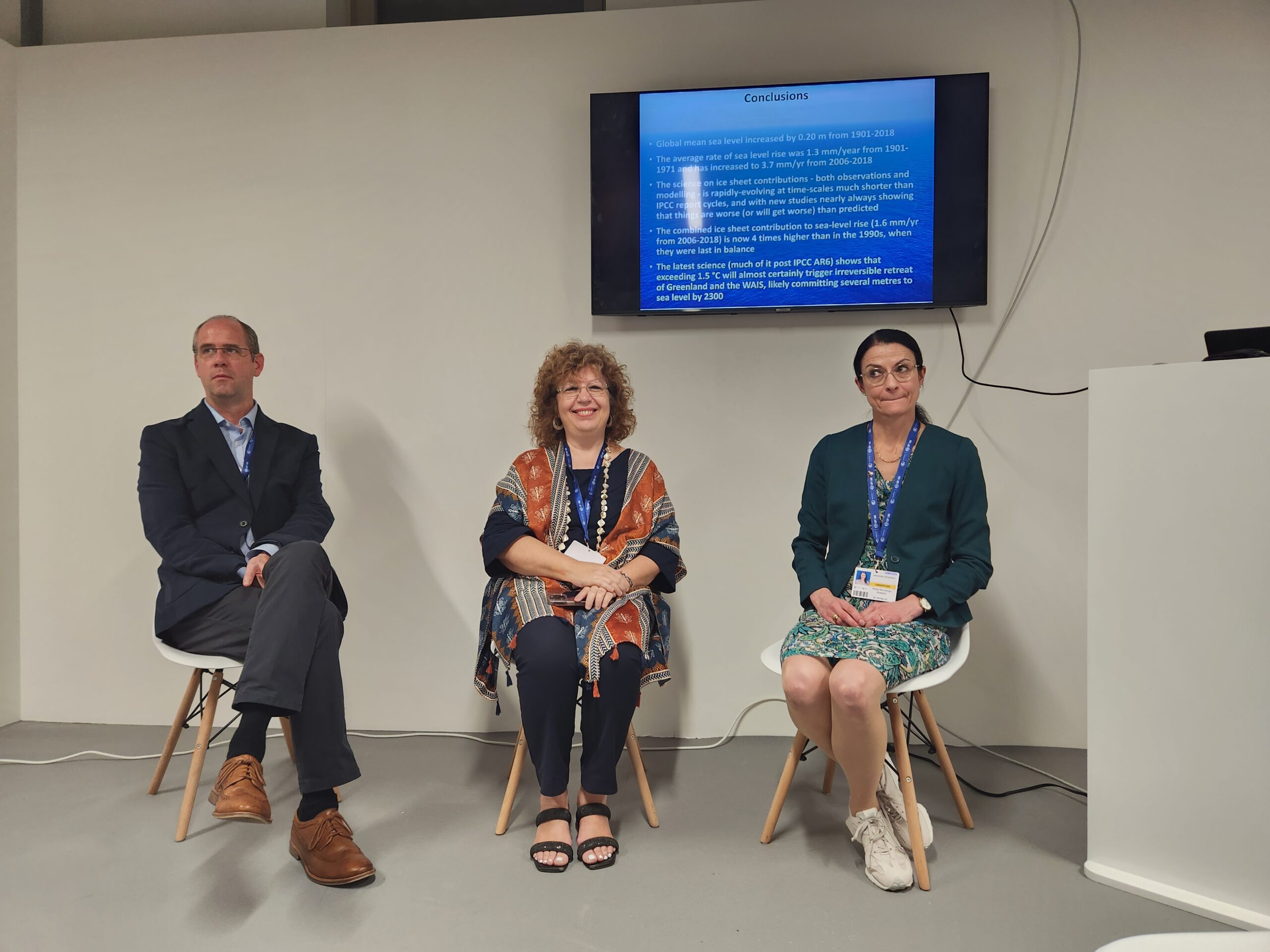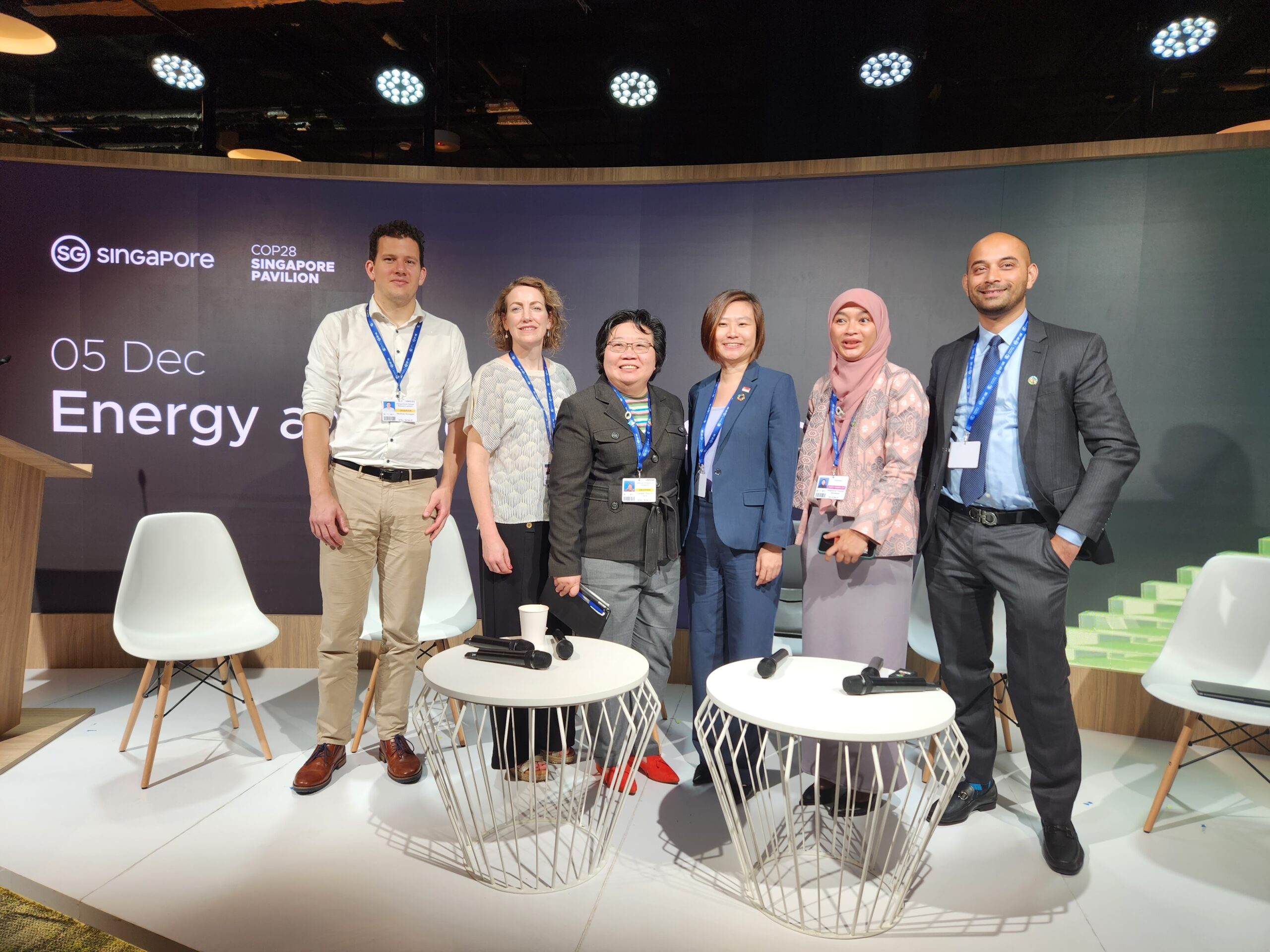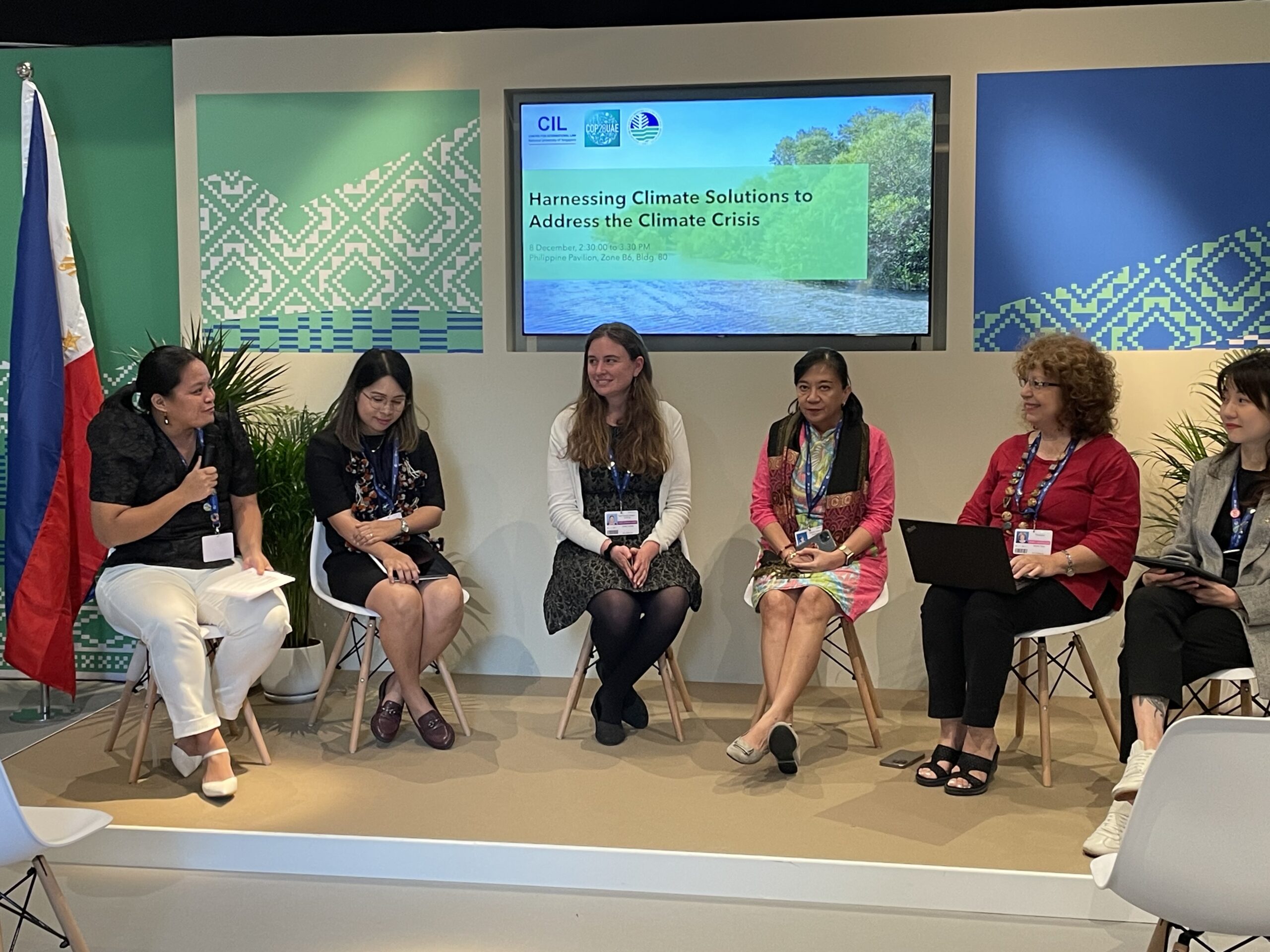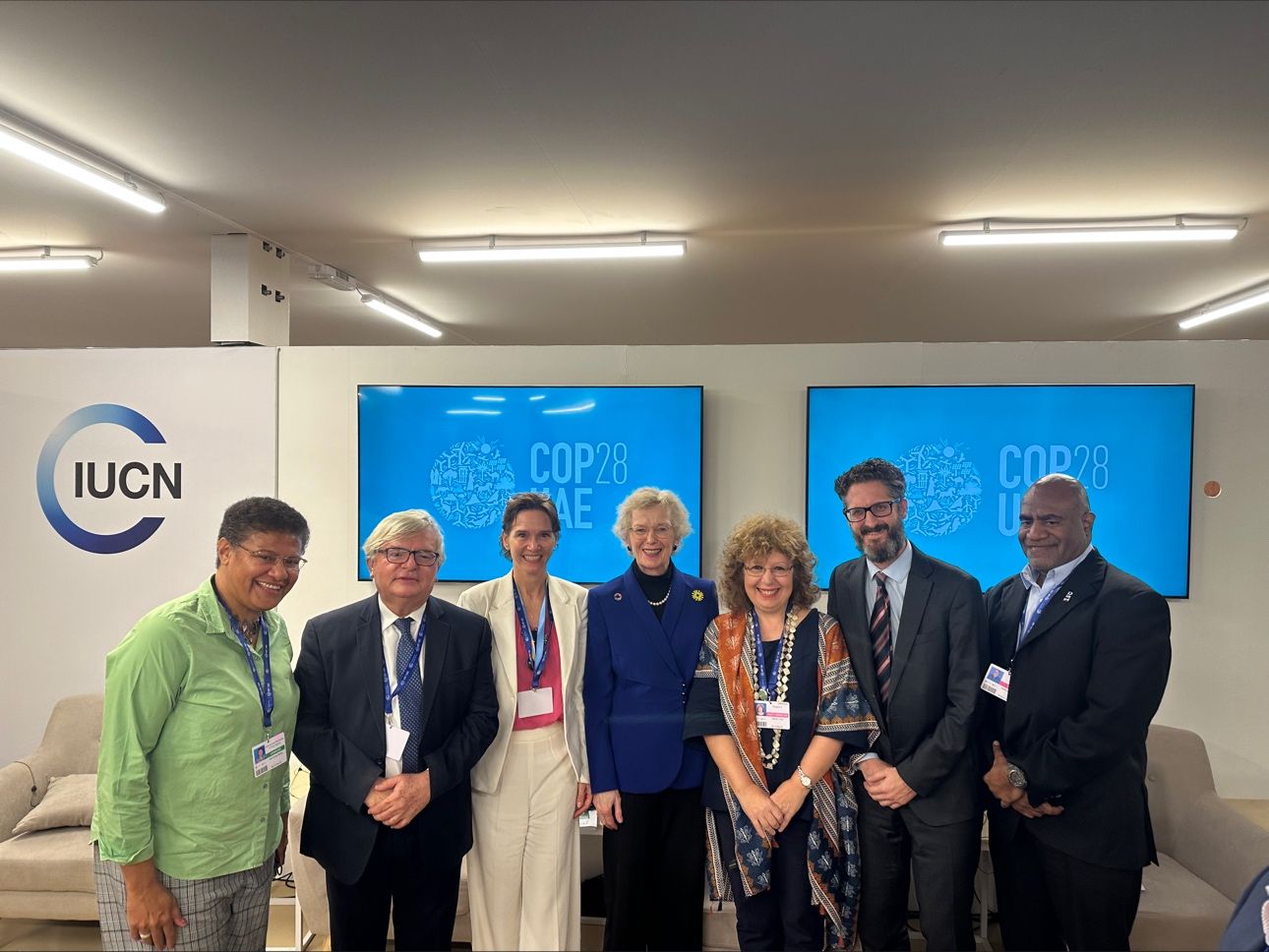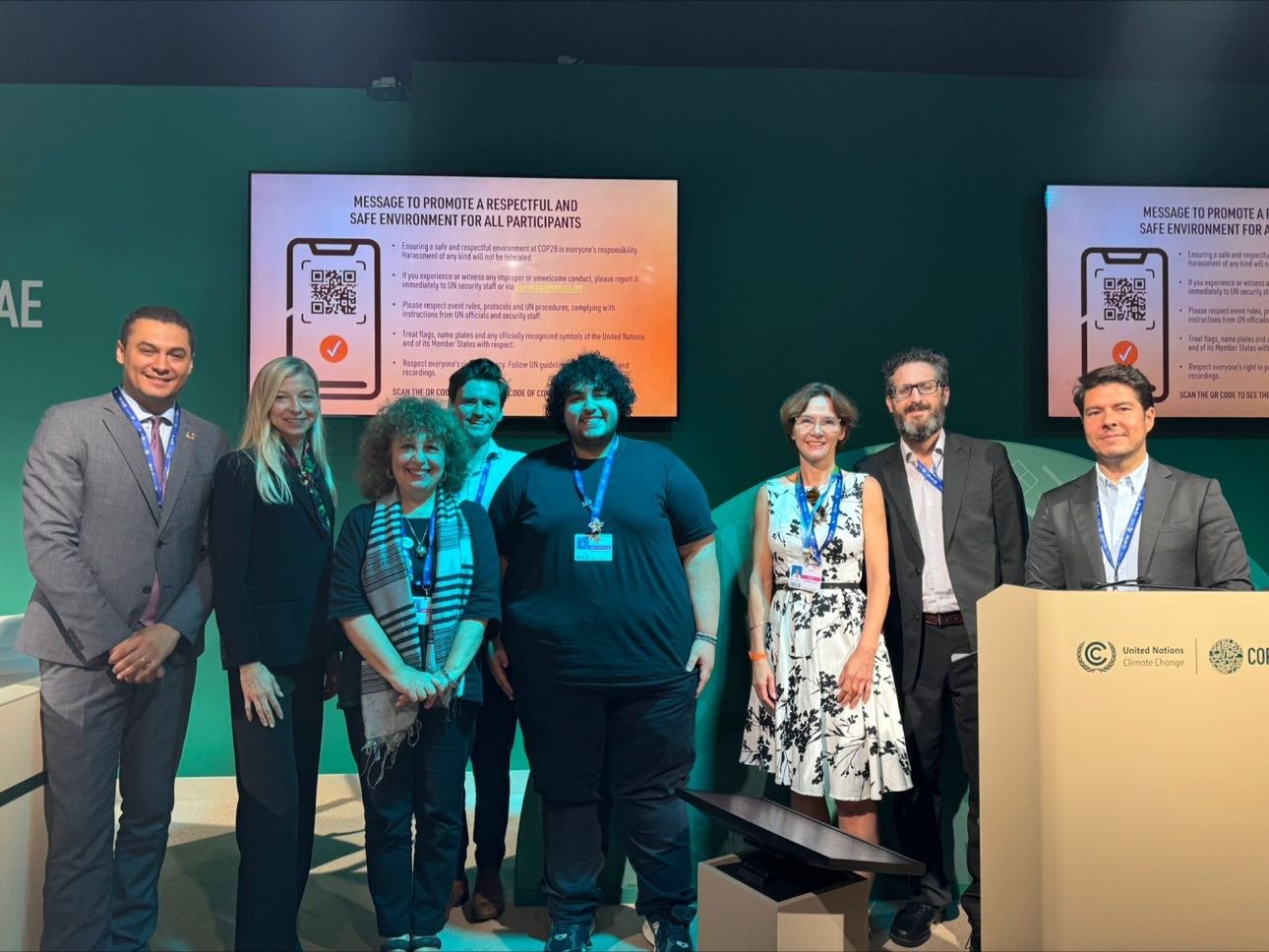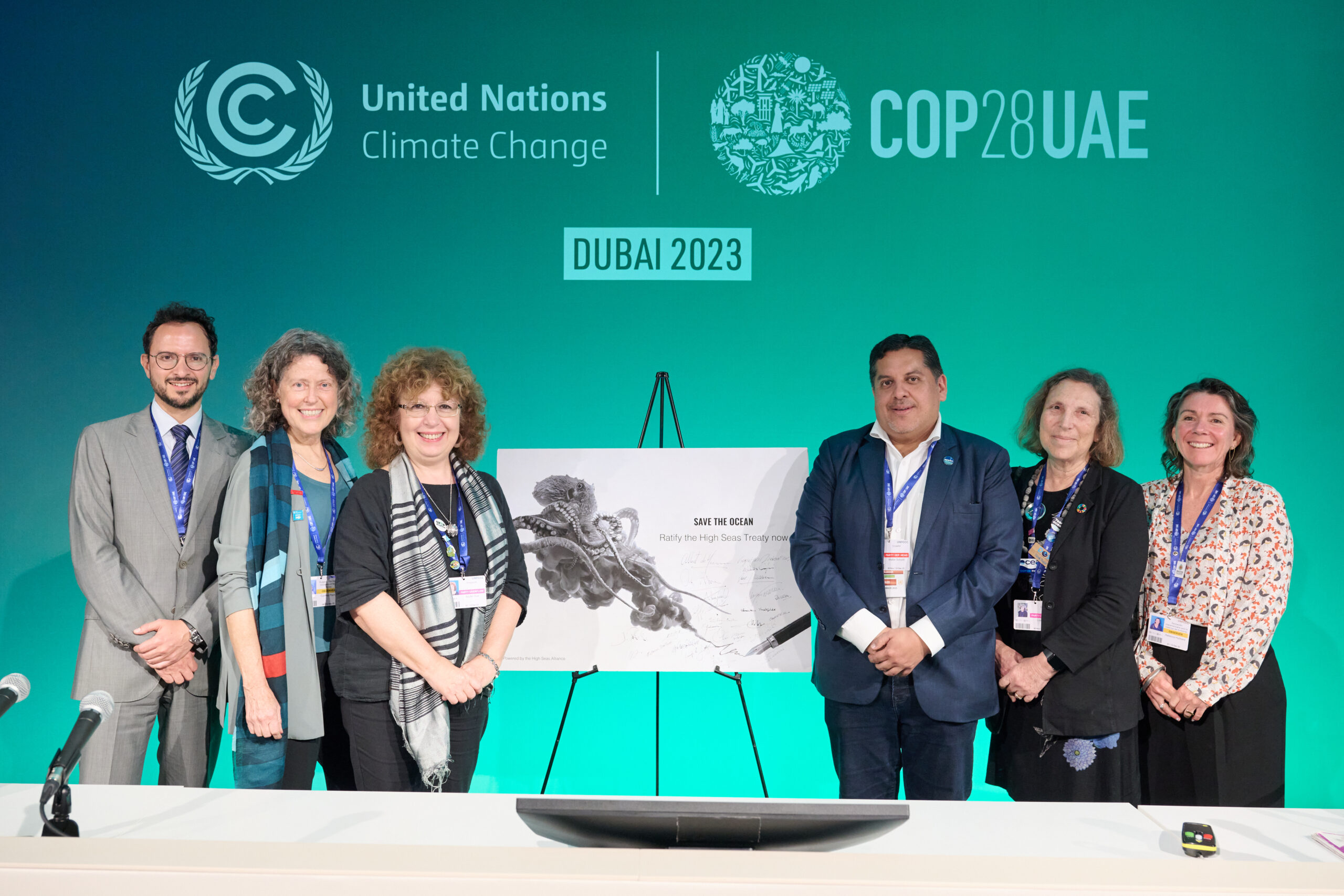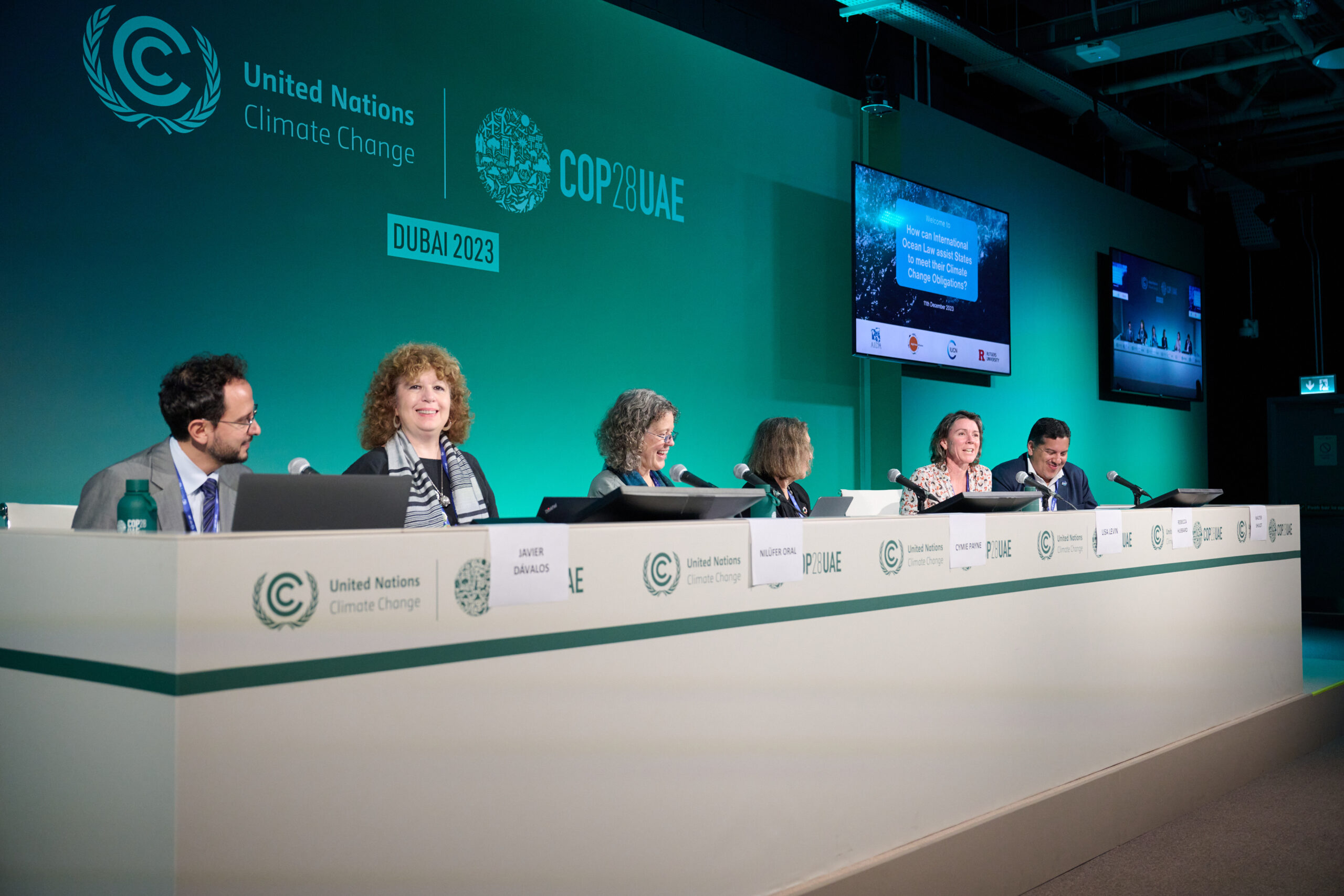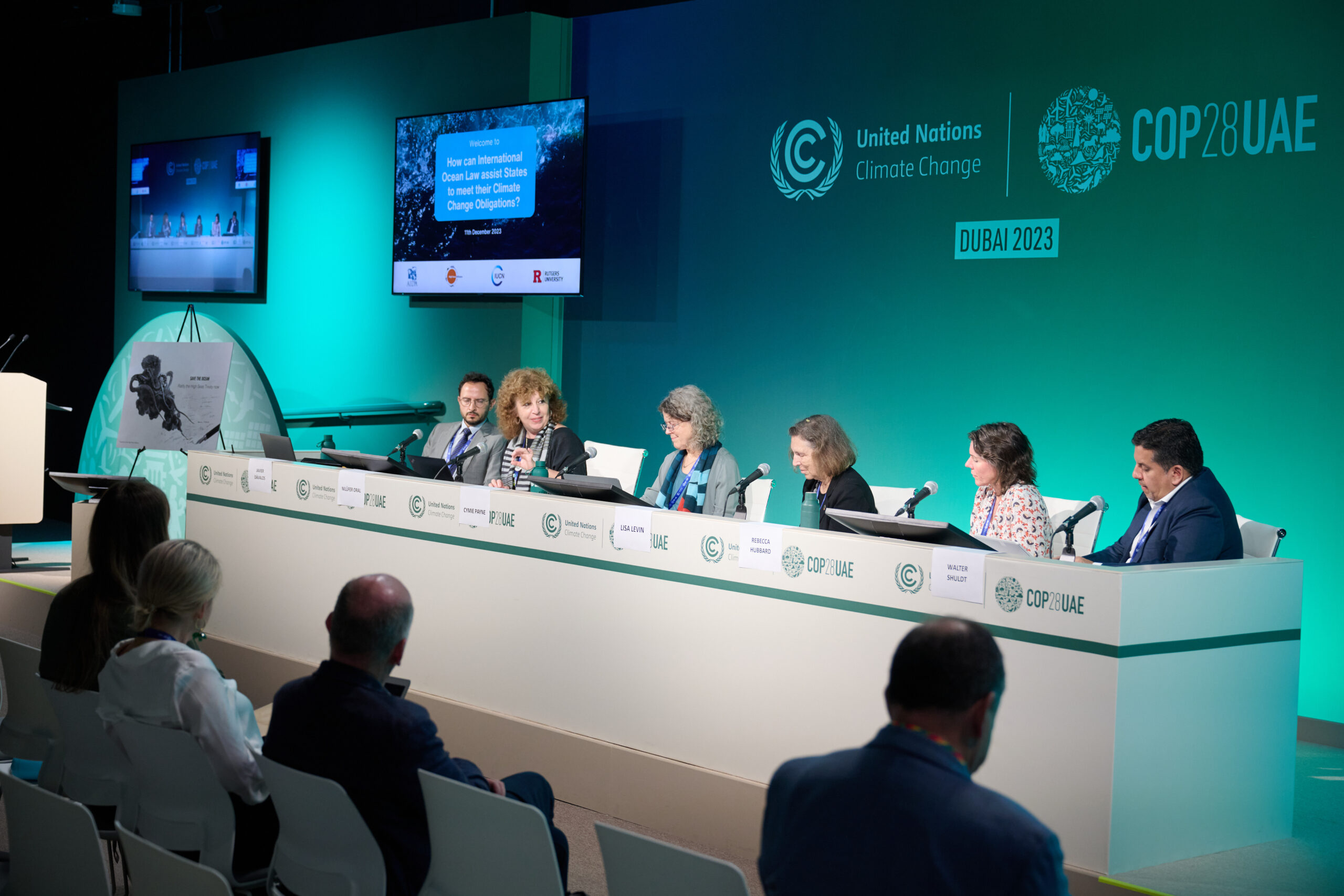

Dec. 3, 12:00, IUCN Pavilion at COP28
Legal Nexus of the Triple Planetary Crisis: convergence of treaty regimes for climate change, biodiversity within and beyond national jurisdiction and plastic pollution
Dec. 3, 13:15 to 14:45, SE Room 6
Finance Flows, Trade, and Closing the Ambition Gap Post-GST: Investor Engagement with Governments
Dec. 3, 18:00 to 19:30, Cryosphere Pavilion
International Law’s Response to Sea Level Rise
Dec. 5, 11:45 to 13:00, Singapore Pavilion
Carbon Capture and Sequestration – Promise, Prospects, and Challenges
Dec. 6, 17:00 to 18:00, Philippine Pavilion
Trade and Finance Flows: Pathways for Implementing the Outcomes of the First Global Stocktake
Dec. 8, 14:30 to 15:30, Philippine Pavilion
Harnessing Ocean Solutions to Address the Climate Crisis
Dec. 9, 17:00 to 18:00, Singapore Pavilion
Nurturing Marine Ecosystems for Livelihoods and Resilience
Dec. 11
Side Event On The High Seas Treaty And Climate Change Obligations
This year’s United Nations Climate Change Conference will be held from 30 November to 12 December 2023 in Dubai, United Arab Emirates. This Conference will host the 28th Conference of the Parties (COP) to the United Nations Framework Convention on Climate Change (COP 28), the 5th meeting of the COP serving as the Meeting of the Parties to the Paris Agreement (CMA 5), the 18th meeting of the COP serving as the Meeting of the Parties to the Kyoto Protocol (CMP 18), and the 59th meeting of the Subsidiary Body for Implementation and the Subsidiary Body for Scientific and Technological Advice (SBI 58 and SBSTA 59). The Conference will also conclude the first Global Stocktake, a two-year process undertaken every five years to assess the global collective progress of the Paris Agreement’s goals.
The NUS Centre for International Law is proud to send a delegation to this year’s Conference. Nilufer Oral (Director), Danielle Yeow (Head, Climate Change Law and Policy), and Railla Puno (Research Associate, Climate Change Law and Policy) will be on the ground to host and speak on various side events and monitor important developments in the negotiations.
Updates!
Dec 3, 10:30
The Paris Agreement Conciliation Annex: Another Arrow in the Global Quiver for Responding Effectively to Climate Change
International Council for Commercial Arbitration
The ICCA Panel of Experts finalized a draft of the Paris Agreement Conciliation Annex in September 2023. The draft consists of articles setting out proposed procedures for disputes submitted to conciliation along with commentary explaining the basis for the text and the relevant considerations for each issue presented. The Draft Annex and Commentaries, which draw upon the rich body of practice and precedent in this area, reinforce features of effective conciliation mechanisms while providing opportunities for the disputing parties to determine the appropriate scope, procedure, and result best tailored to their dispute.
Nilufer Oral was a panellist in this event and provided critical insight, comments, and recommendations on the draft annex.
Dec. 3, 12:00, IUCN Pavilion at COP28
Legal Nexus of the Triple Planetary Crisis: convergence of treaty regimes for climate change, biodiversity within and beyond national jurisdiction and plastic pollution
IUCN World Commission on Environmental Law
Expert speakers gave presentations on the convergence of treaty regimes for Climate Change, Biodiversity, and Plastic Pollution. Nilufer Oral gave the opening remarks in this event, highlighting the importance and urgency of strong coordination between the different legal regimes.
Dec. 3, 13:15 to 14:45, SE Room 6
Finance Flows, Trade, and Closing the Ambition Gap Post-GST: Investor Engagement with Governments
NUS CIL, Durham University CSDLP, Global Ethical Finance Initiative, and Climate Markets and Investment Association
This session examined the role of investors, trade, and investment in addressing the ambition gap as highlighted in the technical assessment phase of the global stocktake. According to the UNFCCC, global additional investment, and financial flows of USD 200-210 billion will be needed in 2030 to return global greenhouse gas emissions to current levels. Private finance can play an important role in meeting the goals of the Paris Agreement – not only through mobilising funding for transitions and for adaptation finance, but also by engaging with governments on the importance and feasibility of ambitious and decisive climate action. Many investors are already mobilising analytical tools and investment strategies to engage governments on climate risks, including in the sovereign debt space. The alignment of the international legal frameworks on climate change with the rules on trade and investment, ranging from trade in “green” goods and services, investment protection and facilitation and dispute settlement, will be important for meeting the long-term goals of the Paris Agreement. Trade, investment, and global partnerships have the potential to deliver the markets and technological innovations that are critical for effective mitigation and adaptation. NUS CIL organized this event with Durham University, CMIA, and GEFI. Danielle Yeow moderated the first panel with Mahmoud Mohieldin, Ralph Ossa, Minister Tofilusi Tiueti, and Petra Minnerop.
Dec. 3, 18:00 to 19:30, Cryosphere Pavilion
International Law’s Response to Sea Level Rise
Organised by Durham University and NUS CIL
The ice sheets in Greenland and Antarctica are highly sensitive to even small changes in temperature which could lead to a large acceleration in global mean sea level rise over the next few decades. Recent work, much of it since the IPCC AR6, has focused on identifying the critical thresholds for each ice sheet, with a clear danger of exceeding 1.5 °C. This scientific knowledge is currently not reflected in the international legal regime on climate change. How can Conferences of Parties (COP) generally, and in particular COP28 with the expected outcomes of the Global Stocktake, incorporate the latest science that points towards even higher risks from sea level rise? This event not only raised the awareness of existing international law on sea-level rise, but also explored how legal and scientific research on seal-level rise can be better integrated to influence policy and law making at the international and the national level. NUS CIL co-organized this event with Durham University and Nilufer Oral, Co-Chair of the Study Group on Sea Level Rise in Relation to International Law of the International Law Commission, spoke on the issues and implications of sea level rise in international law.
Dec. 5, 11:45 to 13:00, Singapore Pavilion
Carbon Capture and Sequestration – Promise, Prospects, and Challenges
NUS CIL and the COP 28 Singapore Pavilion
The momentum in CCUS deployment has grown substantially in recent years, with over 500 projects in various stages of development across the CCUS value chain and announcements of around 50 new capture facilities to be operating by 2030, capturing around 125 Mt CO2 per year.
While there is growing interest to develop off-shore CCS in sub-seabed geological formations, there are unresolved questions about the legal and regulatory, technological and logistics considerations that impact on its deployment at scale and the risks of adverse effects on the marine environment. The panel examined the legal and policy context in which CCS is being advocated and examine the existing international and domestic legal regulatory frameworks (including gaps) that govern such activities as well as the policy, economic and technical drivers that incentivize CCS infrastructure and activities. The panel also discussed questions relating to the carbon accounting infrastructure and methodologies for CO2 capture and storage and CO2 transport and a case study of innovative CCS technologies will be presented.
Danielle Yeow moderated this panel with Youna Lyons, Matthias Honneger, Ruth Herbert, Gaurav Sant, Fam Wee Wei, and Belladonna Maulianda.
For additional resources, pls refer to "Overview of international & regional regulations, policies and frameworks applicable to transboundary CCS"
Dec. 6, 17:00 to 18:00, Philippine Pavilion
Trade and Finance Flows: Pathways for Implementing the Outcomes of the First Global Stocktake
NUS CIL and the COP 28 Philippine Pavilion
According to a UNFCCC report, global additional investment, and financial flows of USD 200-210 billion will be needed in 2030 to return global GHG emissions to current levels. The alignment of the international legal framework for trade and investment is also crucial in meeting the goals of the Paris Agreement. This panel looked at how the global stocktake, as a legal and policy process, can aid Parties in enhancing their national commitments with the promise of Paris-aligned consistent financial flows. The discussion also examined and assessed developments in the international governance framework, including trade and investment rules, developments in FTA practice, and the global disclosure systems in meeting the goals of the Paris Agreement.
Danielle Yeow moderated this panel with Dan Esty, Markus Gehring, Ma. Corazon Dichosa, Petra Minnerop, and Amir Sokolowski.
Dec. 8, 14:30 to 15:30, Philippine Pavilion
Harnessing Ocean Solutions to Address the Climate Crisis
NUS CIL and the COP 28 Philippine Pavilion
Climate change has profound impacts on oceans and vice versa. For countries such as the Philippines with 80% of its population living in coastal municipalities and fisheries accounting for 40% of total animal-sourced protein consumed, ocean-based adaptation is necessary to ensure food security for the coming generations. On the other hand, oceans have the potential to contribute greatly to adaptation and mitigation efforts that will allow us to achieve the goals of the Paris Agreement. With their ability to store large amounts of heat and planet-warming carbon dioxide, the oceans can help to put the brakes on rampant warming. With this in mind, the side event highlighted recent international policy developments on the ocean and climate change nexus and identified opportunities to further harness ocean-based adaptation and mitigation to address the climate crisis.
Railla Puno moderated this panel with Nilufer Oral, Theresa Mundita Lim, Jhorace Tupas, Emily Landis, and Audrey Tan.
Dec. 10, 17:30
Islands Driving Forward Climate Change Law
IUCN World Commission on Environmental Law’s Climate Change Law Specialist Group
This IUCN World Commission on Environmental Law, in collaboration with the Scottish Government, Vanuatu Government, GLISPA (Global Island Partnership), Island Innovation, IRENA, University of Strathclyde, Macquarie University and CIIAE - Iberian Centre for Research in Energy Storage, will showcase island nations’ leadership in promoting and advancing international climate change law. Large Oceanic Island States (formerly known as SIDS) are at the forefront of at least four key developments: 1) the use of international courts to clarify the legal nature of climate change legal obligations in international law; 2) the consolidation of loss and damage within the Paris Agreement and its further operationalisation in the ongoing negotiations; and 3) increased ambition in terms of domestic climate targets and promotion of renewable energy; and 4) creative approaches to «freezing» base lines and establishing immediate custom on maritime zones to prevent their loss of sea area. The event will present expert roundtables around the four developments just mentioned. Each one will feature experts from governments, civil society organisations and other stakeholder groups who have contributed to the island’s leadership in international climate change law.
Nilufer Oral was a panellist at this event along with Francesco Sindico, Christina Voigt, Mary Robinson, Arieta Gonelevu Rakai, Madeline Taylor, and Hon. Ralph Regenvanu.
Dec. 11, 11:30 AM
The Transformative Power of Law in Promoting a Just Transition to a Climate Positive World
International Development Law Organization, IUCN World Commission on Environmental Law, UN Environment Programme, and the University of Oslo
Law can have a transformative power to support the goals of the Paris Agreement and a just transition to a climate positive world. This event will discuss pressing legal issues in the climate agenda, including legal aspects of implementing nature-based solutions and human rights-based approaches.
Nilufer Oral was a panellist at this event which was moderated by Ayman Cherkaoui.
Dec. 11
Side Event On The High Seas Treaty And Climate Change Obligations
At an official side event the High Seas Alliance, Interamerican Association for Environmental Defense (AIDA), IUCN and Rutgers University convened a panel of experts to consider the critical gaps in ocean governance that the new High Seas Treaty will fill, and the linkages with climate change responsibilities.
Moderating the side event, Javier Dávalos González, AIDA, opened by discussing the fragmented and uncoordinated governance framework of the High Seas and how the High Seas Treaty presents a radical opportunity to increase protection of the largest habitat on Earth that is home to millions of species.
Providing an overview of the incredible ecosystems of the High Seas and deep sea and their role in mitigating global climate, Dr Lisa Levin, Scripps Oceanography, highlighted how protecting biodiversity of the High Seas and deep sea – the waters below 200 meters – will help maintain the Earth’s carbon cycle which is vital in our fight against climate change.
Dr Nilüfer Oral, of the National University of Singapore and UN International Law Commission referred to the High Seas Treaty as “the missing link in our ocean governance” as the Treaty is the first international legally binding agreement that includes the ocean and climate change.
Walter Schuldt, the Chief Negotiator for the Government of Ecuador during the BBNJ negotiations, provided insights from the five years of High Seas Treaty negotiations and reflected on how the final text links to climate change. Walter noted that whilst the Treaty does not provide all the tools to address climate change, it does provide entry points and measures that will be very useful to respond to the climate crisis. Emphasizing the need for rapid entry into force, Walter referenced the emergence of marine geoengineering, such as ocean fertilization experiments to draw down carbon dioxide, for which the Environmental Impact Assessment (EIA) aspect of the Treaty will be essential to prevent widespread ocean impacts.
Professor Cymie Payne from Rutgers University and IUCN reflected on the specific obligations of UNCLOS to protect the marine environment and how this relates to climate change. Cymie also referenced a recent IUCN introductory brief explaining the High Seas Treaty and drawing on insights from the history and direction of the negotiations.
Director of the High Seas Alliance, Rebecca Hubbard, talked of the need to build on the science and legal aspects of the Treaty in the race towards ratification. Rebecca called for swift ratification of the High Seas Treaty which we know is possible, as evidenced by the Paris Agreement, that entered into force just one year after adoption. The High Seas Alliance are supporting governments globally to ratify and build capacity.


